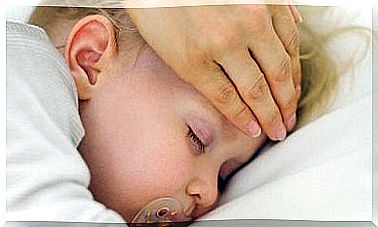Fewer Vaccinations And An Increased Incidence Of Measles

Fewer vaccinations are one of the main reasons for the sudden return of measles worldwide. In 2000, the United States was ready to announce the eradication of the disease there. At that time, there were less than 12 registered cases per year in the country.
But due to immigration and the anti-vaccination movement, the world is far from reaching that goal today. According to UNICEF, today we can see a return of measles.
What is measles?
Measles is a very serious and contagious disease that used to cause about two million deaths a year. This was before the mass vaccination of the world’s population.
According to the World Health Organization (WHO), measles now kills an estimated 11,000 people a year. Most of these are children between 2 and 3 years old.
The disease is caused by a virus from the paramyxovirus family. It only affects humans, not animals, and spreads through direct contact and via the air. The virus first affects the airways and then spreads to the whole body.
The effects of the measles virus as a result of fewer vaccinations
The measles virus manifests itself mainly through elevated body temperature, or fever, 10 to 12 days after the time of infection. Later, a skin rash consisting of red dots appears.
The rash normally begins on the face and neck and then spreads to the rest of the body and reaches all the way to the hands and feet. After five days, the symptoms begin to subside and disappear.

In some cases, however, complications can occur during the course of the disease, and these can have serious consequences such as blindness, encephalitis, pneumonia and, in the worst case, death, if the symptoms are not treated in time.
These more severe cases are most common in children under the age of five who have a weakened immune system and live in areas with malnutrition or where the vaccine is not available.
Why do we now have fewer vaccinations?
Dr. Seth Berkley, Director-General of Gavi, The Vaccine Alliance, points out several possible reasons for this resurgence:
Countries such as Guatemala, Nigeria and Pakistan have already been identified as extremely vulnerable to possible measles outbreaks due to fewer vaccinations. This is remarkable given that the measles vaccine is very cheap. Pharmaceutical companies and UNICEF have set a fixed price.
The vaccine costs less than a dollar, but many children receive only one of the two necessary doses. This is due to war and the lack of functioning health care systems in war-torn countries.
Resistance to vaccines in developed countries
These data, and the fact that the World Health Assembly in 2012 approved the global vaccine action plan to eradicate measles, contradict the epidemiological statistics on measles in developed countries.
The fact that people are no longer vaccinated against measles as much as before in these countries is worrying. Very incorrect information has been spread to the population through anti-vaccine campaigns. These claim that vaccinations are not necessary if the symptoms can be treated. In addition, they point out the danger of potential side effects of vaccines.

However, the truth is exactly the opposite. Healthcare professionals are considering a possible vaccination campaign for women born between 1971 and 1981, as the consequences of getting measles during pregnancy can lead to miscarriage and serious birth defects.
The measles vaccine has been around for more than 60 years and is safe and effective. It is so safe that you usually administer it together with vaccines against rubella and mumps. It is true that a percentage of the population may experience negative side effects, but we are talking about millions of vaccines a year.
Measures to avoid the spread of measles
In 2001, associations such as the Red Cross, the CDC, the UN, UNICEF and the WHO signed the initiative on measles and rubella. The aim of the initiative is to:
- Respond to incorrect and false information.
- Guarantee a sustainable investment system to finance vaccinations.
- Increase public support for vaccines.
- Work to carry out vaccinations in vulnerable areas.
- Eradicate the disease.









